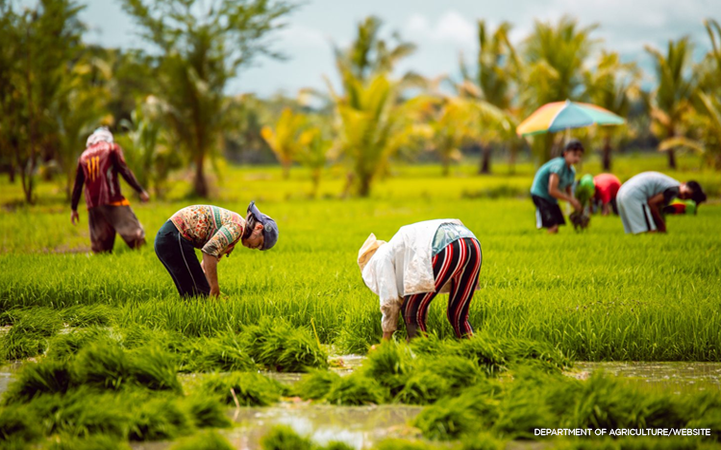Marcos issues orders for palay floor price, full implementation of Sagip Saka Act
Metro Manila, Philippines - President Ferdinand Marcos Jr. has issued executive orders to set a floor price on palay and the full implementation of the law requiring government purchases to directly from agricultural workers.
Executive Orders 100 and 101 were signed by Marcos, through Executive Secretary Lucas Bersamin on Saturday, Oct. 25.
On EO 100, Marcos directed the Department of Agriculture to determine, set, and adjust the floor price of palay to be purchased by the government.
Considerations for the floor price included production cost, prevailing market prices, reasonable margins for farmers, and welfare of farmers and consumers.
The DA should also consider other relevant factors and conditions such as emergencies or calamities, import arrival influx, sharp decline in global prices, and the government’s capacity to buy palay at competitive prices and manage market intervention.
“In establishing the floor price of palay, the DA shall ensure a fair return of investment to farmers on a regional level by recognizing regional variance in production costs, market conditions, and profit margin, to be reviewed and adjusted before the onset of cropping season or whenever necessary,” read the EO.
The EO also allowed the temporary storage of palay in public facilities such as covered courts, multi-purpose halls, gymnasiums, and other government-owned structures if grain warehouses were already congested.
The Interior Department serves as the co-chairperson of the steering committee for the palay floor price, with the members including trade, social welfare, and agrarian reform departments, as well as the National Food Authority.
Sagip Saka Act
Meanwhile, EO 101 directed the full implementation of Republic Act 11321 or Sagip Saka Act, which mandates national and local government agencies to directly purchase harvest from accredited farmers and fisherfolk cooperatives and enterprises.
The order also requires the government to ensure that rice and other agricultural and fishery products served in government events, food service areas or canteens are directly bought from accredited cooperatives and enterprises to promote the consumption of locally produced food and support small producers.
If there is no local production, government agencies and local government units may also source products from the nearest locality.
For both EOs, the budget will be sourced from existing appropriations of the agencies and other sources identified by the budget department.
RELATED: P3-B budget sought for emergency procurement of palay - NFA
https://www.newswatchplus.ph/news/2025/9/30/p3-b-nfa-emergency-procurement-palay.html
Sen. Kiko Pangilinan, the Senate committee on agriculture and food chairperson, said the issuance of the EOs were a win for farmers and fisherfolk.
Pangilinan met Marcos and the Cabinet in September to push for the orders.
Current situation
Currently, the NFA buys wet palay at P17 per kilogram and P23 per kilogram for dry palay.
But in September, there were reports of depressed prices of the grain after three storms hit the country and largely affected the farm sector.
The food security emergency for rice is still in effect, allowing the government to continuously roll out the P20 subsidized rice program.
The Philippines has also suspended the importation of rice, a policy that will end by yearend to stabilize rice costs.
As of Oct. 22, Metro Manila markets sold local commercial rice at P33/kg to P65/kg, and imported commercial rice at P35/kg to P65/kg, according to the DA.





